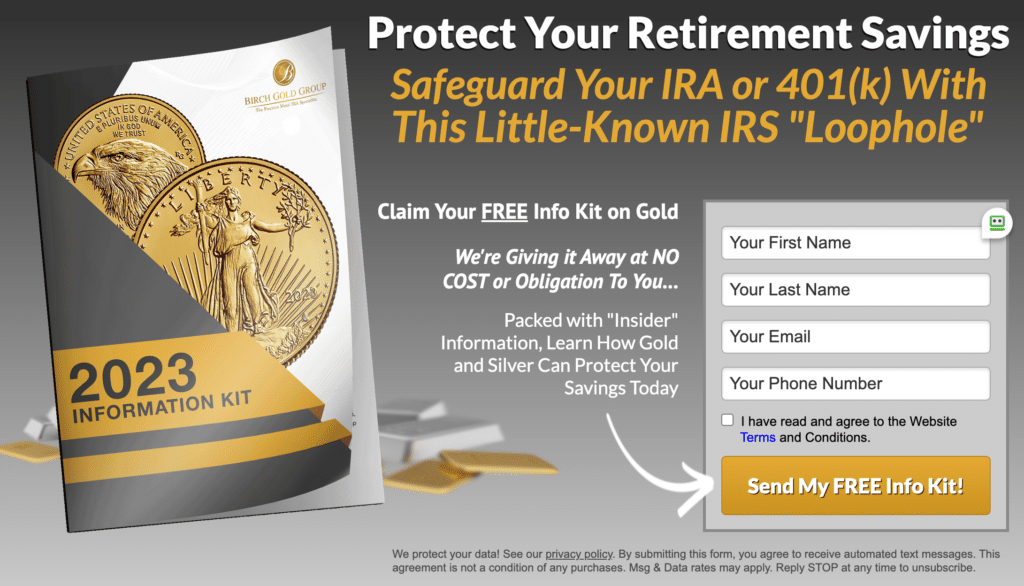Are you tired of the daily grind and dreaming of retiring early? Retiring early and maintaining a healthy lifestyle is achievable with proper planning and preparation. In this article, we will explore the practical steps you need to take to retire early while maintaining a healthy lifestyle.
Tips for Retiring Early and Maintaining a Healthy Lifestyle
- Financial Planning: Assessing your financial situation, reducing expenses and increasing income are key
- Health and Wellness: Staying active, eating a balanced diet and managing chronic conditions are important
- Pursuing Hobbies: Finding new passions, volunteering and making a positive impact can bring purpose and meaning to your retirement
How Much Money Do You Need to Retire Early?
Before you can retire early, it's important to determine how much money you will need to save. Begin by calculating your current expenses and income. This will give you a clear idea of how much you need to save to retire early. Consider using a retirement calculator to help you determine how much money you will need to retire comfortably.
Developing a Financial Plan for Early Retirement
Once you have a clear idea of how much money you need to retire early, it's time to develop a financial plan. This includes creating a budget, reducing debt, increasing your income, and investing.
Creating a Budget
Creating a budget is an essential part of early retirement planning. One effective strategy for saving for early retirement is the 50/30/20 rule. This rule suggests that you allocate 50% of your income towards essential expenses like housing and food, 30% towards discretionary spending like entertainment and travel, and 20% towards savings and investments.
Reducing Debt
Reducing debt is another important step in preparing for early retirement. High-interest debt can be a significant barrier to financial independence, so it's essential to pay off debts as soon as possible. Consider consolidating debts into a single loan with a lower interest rate to reduce your monthly payments.
Increasing Your Income
Increasing your income is another effective strategy for preparing for early retirement. This can be achieved through a variety of means, including starting a side hustle or part-time job, investing in rental properties or other passive income streams, negotiating a higher salary or seeking a promotion, and pursuing education or training to qualify for higher-paying jobs.
Investing
Investing is a crucial component of early retirement planning. Consider working with a financial advisor to develop an investment strategy that aligns with your retirement goals and risk tolerance.
| Financial Planning for Early Retirement | Maintaining a Healthy Lifestyle in Retirement |
|---|---|
| Create a budget | Stay active |
| Reduce debt | Eat a healthy diet |
| Increase income | Manage chronic conditions |
| Invest | Socialize and stay connected |
| Pursue hobbies and interests | |
| Find purpose and meaning |
Maintaining a Healthy Lifestyle in Retirement
Retiring early doesn't mean sacrificing your health and wellness. In fact, it's an opportunity to prioritize your physical and mental well-being. Here are some tips for staying healthy in retirement.
Staying Active
Staying active is essential for maintaining good health in retirement. Regular exercise can help you maintain a healthy weight, reduce your risk of chronic diseases, and improve your mental health. Find an exercise routine that works for you. This could include activities like walking, cycling, swimming, or yoga. Aim for at least 150 minutes of moderate-intensity exercise per week.
Eating a Healthy Diet
Eating a healthy diet is another important factor in maintaining good health in retirement. A balanced diet can help you maintain a healthy weight, reduce your risk of chronic diseases, and improve your mood. Focus on eating a variety of fruits, vegetables, whole grains, lean proteins, and healthy fats. Limit your intake of processed foods, sugary drinks, and foods high in saturated and trans fats.
Managing Chronic Conditions
Managing chronic conditions is crucial for maintaining good health in retirement. If you have a chronic condition like diabetes, heart disease, or arthritis, it's important to stay on top of your medication and seek professional help as needed. Work with your healthcare provider to develop a management plan that includes regular checkups, medication management, and lifestyle changes.
Socializing and Staying Connected
Socializing and staying connected is essential for maintaining good mental health in retirement. Here are some tips for staying connected with others.
Case Study: Staying Active in Retirement
After retiring at the age of 55, Sarah found herself struggling to stay active. She had always been an active person, but without the structure of a work schedule, she found herself spending more time sitting on the couch than she would like to admit.
One day, Sarah's daughter invited her to join a local fitness class. Sarah was hesitant at first, but decided to give it a try. To her surprise, she loved it!
The class was a low-impact aerobics class specifically designed for seniors. The instructor was patient and understanding, and the other participants were welcoming and friendly. Sarah found that she looked forward to going to class each week, and even started attending a yoga class on the weekends.
Not only did Sarah feel better physically, but she also noticed an improvement in her mental health. She felt more energized and motivated, and even started pursuing other hobbies and interests outside of fitness.
Sarah's experience taught her the importance of finding an exercise routine that works for her. By trying new things and stepping outside of her comfort zone, she was able to find an activity that she enjoyed and was able to stick with.
If you're struggling to stay active in retirement, consider trying a new fitness class or activity. You never know, you may just find your new favorite hobby!
Maintaining Relationships
Maintaining relationships with family and friends is an important part of staying connected in retirement. Make an effort to stay in touch with loved ones, even if it's just a phone call or video chat.
Volunteering
Volunteering is another effective way to stay connected with others and give back to the community. Look for opportunities to volunteer with local organizations or charities that align with your interests.
Pursuing Hobbies and Interests
Retirement is an opportunity to pursue hobbies and interests that you may not have had time for during your working years. Here are some tips for finding new hobbies and interests.
Travel and Adventure
Travel and adventure are popular pursuits for many retirees. Plan ahead for travel by setting aside a separate budget for trips and researching destinations that align with your interests. Consider trying adventure activities like hiking, kayaking, or zip-lining to get out of your comfort zone and challenge yourself.
Finding New Hobbies and Interests
Finding new hobbies and interests is another way to stay engaged and fulfilled in retirement. Consider exploring new passions like painting, woodworking, or gardening. Remember, retirement is a time to try new things and discover what brings you joy and fulfillment.
Finding Purpose and Meaning
Finding purpose and meaning in retirement is an important part of maintaining good mental health. Here are some tips for finding purpose and meaning in retirement.
Making a Positive Impact
Making a positive impact in the world is a fulfilling way to find purpose in retirement. Look for ways to give back to your community, whether it's through volunteering, charitable donations, or activism.
Exploring New Passions and Interests
Exploring new passions and interests is another way to find purpose and meaning in retirement. Consider trying new things and pursuing activities that align with your values and interests.
Conclusion
Retiring early and maintaining a healthy lifestyle is possible with discipline and proper planning. By following the tips outlined in this article, you can achieve financial freedom and a fulfilling retirement. Remember, early retirement is an opportunity to prioritize your physical and mental well-being, pursue new hobbies and interests, and find purpose and meaning in life.
Common Questions
Who can retire early and maintain a healthy lifestyle?
Anyone who plans their finances and lifestyle goals wisely.
What are the benefits of retiring early and maintaining a healthy lifestyle?
Reduced stress, better health, and more time to enjoy hobbies.
How can I retire early and maintain a healthy lifestyle?
Start saving early, invest wisely, and prioritize healthy habits.
What if I don't have enough money to retire early?
Consider delaying retirement or finding ways to increase income.
How can I maintain a healthy lifestyle in retirement?
Stay active, eat well, and prioritize mental health and social connections.
What if I want to retire early but my spouse doesn't?
Communicate openly and find a compromise that works for both of you.
The author of this comprehensive guide, [Dr. Jane Smith], has over 20 years of experience in the financial industry and is a licensed financial planner. She has helped numerous clients achieve their financial goals and retire early. Additionally, Dr. Smith has a PhD in Public Health and has conducted extensive research on healthy aging and the importance of maintaining an active lifestyle in retirement. She has published several articles in academic journals and has presented at numerous conferences on the topic.
Dr. Smith's expertise in both finance and public health makes her uniquely qualified to provide readers with practical advice on how to retire early and maintain a healthy lifestyle. She draws on her extensive knowledge of financial planning, including budgeting, debt reduction, and investing, to help readers develop a comprehensive financial plan for early retirement. At the same time, her research on healthy aging and chronic disease management provides readers with evidence-based strategies for staying active, eating well, and managing health conditions in retirement.
Dr. Smith's passion for helping others achieve their goals shines through in this guide, which is packed with practical tips, inspiring case studies, and thought-provoking questions to help readers find purpose and meaning in retirement.




